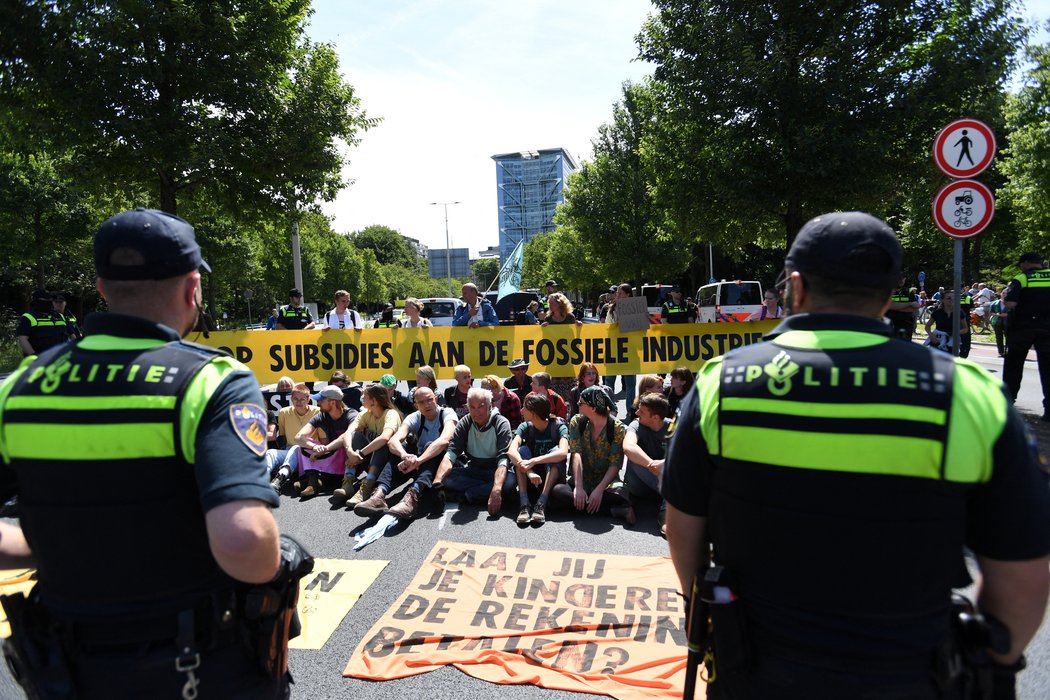
Peaceful Assembly
Farmers continue to protest the new environmental regulations, resulting in friction with police
As reported in the previous CIVICUS Monitor update, Dutch farmers continue to protest and block local supermarket distributors in response to the government's proposal to reduce nitrogen oxide, as part of their commitment to reduce hazardous emissions by 70 per cent to achieve the European 2030 goals. Farmers throughout the country feel that they are being unfairly treated, as these new regulations would increase the cost of farming, specifically of producing livestock. Geertjan Kloosterboer, a third-generation dairy farmer stated, “(farming) is in our blood, I want to do this, and if we have to adapt to new situations, I want to, but we have to be fair, it takes time - give me a chance”. As a consequence of the new government regulation, it is foreseen that over 11,200 farms will close.
On 6th July 2022 there was an incident in the province of Friesland where police shot at protesting farmers as they claimed they were responding to a threatening situation which had escalated. The police did not give a statement except for an assurance that no one was harmed. Three people were arrested and the Dutch government's internal investigator said it would launch investigations into the incident. A video circulating on social media showed farmers attacking undercover police. However, following an investigation by Euronews, the video was found to be misleading and had been taken from COVID-19 protests in 2020.
This event provoked MP Caroline van der Plas', founder of the Farm Citizens Movement (BBB), to call for an "emergency debate" with Dutch Prime Minister Mark Rutte and the Minister of Justice and Security, Dilan Yeşilgöz-Zegerius, about the escalating protests.
Stricter treatment for climate activists than for farmers
On 6th July 2022, around 40 climate activists who form part of the Extinction Rebellion group were arrested as they performed an action blocking a part of the Utrechtsebaan, a stretch of the A12 motorway between the temporary House of Representatives building and the Ministry of Economic Affairs. The group arrived around noon to demonstrate against government fossil fuel subsidies. A vehicle was used to block access to the A12, after which two protesters chained themselves to the roof of the car, which then was followed by more demonstrators who occupied the road. It took the police around 30 minutes to arrive, who then started arresting protesters and reopened the road around 2pm. Police arrested several activists after Mayor Jan van Zanen issued an emergency order after learning of the plan to block the highway.
"We are all for the right to demonstrate, which is a fundamental right. Civil disobedience is also a part of that. Even blocking a highway can be seen as a right to demonstrate, according to the European Court of Human Rights. Violence is where we draw the line. When you are not violent, you are within your right to protest” - Chris Julien, a spokesperson for Extinction Rebellion NL.
Prominent justice lawyer Bénédicte Ficq, pointed out how the police are much faster to act on demonstrations organised by climate protests compared to those of farmers. She argues that this is part of the de-escalation policy, which implies a softer approach with farmers despite them being more disruptive to public order than climate activists. This double-standard policy results in climate activists being treated with disproportionate severity compared to the farmers.
Extinction Rebellion zit op Utrechtsebaan bij Bezuidenhoutseweg @omroepwest pic.twitter.com/KR04wQftXf
— mariët overdiep (@overdiepm) July 6, 2022
Expression
There have been several attacks on the media, both online and in person.
- On 29th July 2022, investigative journalist Esther Chavannes was verbally attacked on Twitter by nationalist and far-right member of the Dutch House of Representatives Pepijn van Houwelingen, who called her a "hoernalist" (contraction of "whore" and "journalist" in Dutch).He claims that Chavannes is paid by the Dutch government and argued “In free countries, journalists control the government and not the other way around. #mediakartel". Paul Teixeira, Secretary Publishing at NVJ (Dutch Journalists’ Association) criticised this position, claiming that Van Houwelingen went too far.
- On 7th August 2022, photographer Roland Heitink, owner of Media Company Persbureau Heitink, was threatened after publishing a photo of a swastika flag hanging from a motorway bridge in Stroe, a village in the Dutch province of Gelderland. The photo was taken by a member of his team, who went to report on car fires in the area. However the online public assumed that Roland himself had hung the flag, and therefore multiple death threats were made towards him and his family. Roland intends to report the attacks to the police.
- On 21st August 2022, a freelance photographer was harassed by overseers while reporting on an incident in Woerden, Central Netherlands. Justin Egberts, the photographer in question, was taking photos of a police intervention related to a person who fell into the water when some people present at the scene started to attack the photographer. The police said they would launch an investigation.